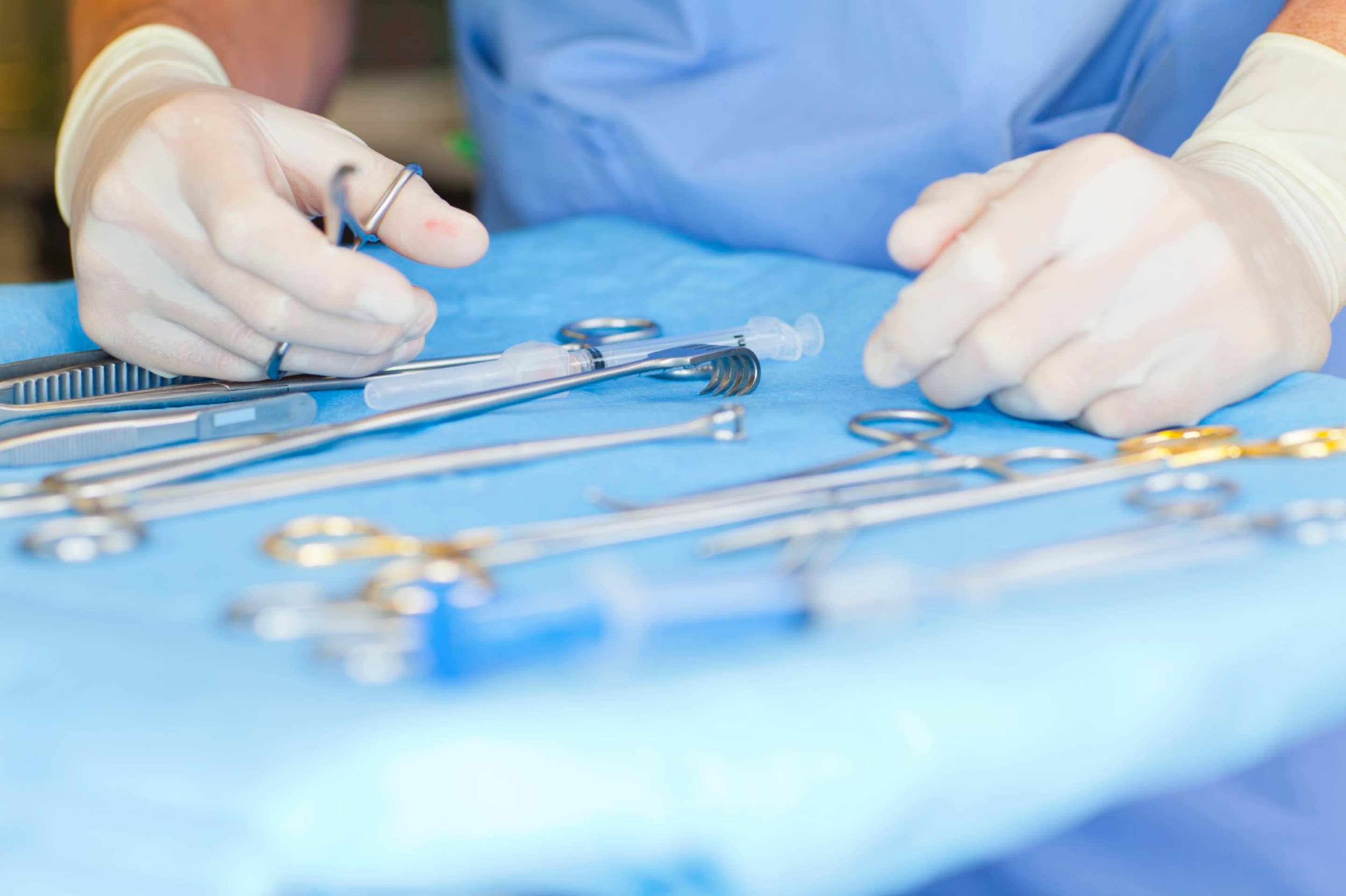Less-invasive surgery may not be best option for rectal cancer
More research needed to establish the case for routine use of laparoscopic surgery for rectal cancer.

A comparison of the surgical removal of rectal tumours by a laparoscopically-assisted 'keyhole' procedure and open surgery reveals that the case for routine use of laparoscopic procedures has not yet been established, according to a randomised control-trial study published today in The Journal of the American Medical Association.
The objective of the multicentre Australasian Laparoscopic Cancer of the Rectum Trial (ALaCaRT) involving 475 patients with T1-T3 rectal tumours was to assess whether laparoscopic surgery was similar – or no worse – than open surgery in terms of the successful removal of all the rectal cancer.
Ultimately the case for recommending the routine use of laparoscopic surgery for these patients will be based on long-term outcomes for recurrence and survival associated with each procedure.
Advances in laparoscopic technology since the 1990s have spurred the adoption of this operative approach to diseases of the rectum. Four international trials have reported that laparoscopic surgery is not worse than open surgery for colon cancer in terms of safety, length of hospital stay and survival, and some advantages in terms of morbidity.
However, concerns remain about the applicability of minimally invasive surgery for rectal cancer (the last 15 cm of the bowel, within the pelvis) following a randomised control trial comparison of laparoscopic vs conventional open surgery reporting that the laparoscopic group had a higher positive rate of involvement of the resection margin.
To this point, there has been little definitive evidence to guide surgeons about the safety and efficacy of laparoscopic versus open resection on pathological outcomes in rectal cancer. The ALaCaRT trial conducted by colorectal surgeons in Australia and New Zealand working with the Australasian Gastro-Intestinal Trials Group (AGITG), now reports some key findings on the rates of successful surgery and post-operative complications. This was based on surgical and tumour-related outcomes measures.
- Successful resection was achieved in 82 per cent in the laparoscopic surgery group compared with 89 per cent in the open surgery group.
- The circumferential resection margin was clear in 93 per cent of patients in the laparoscopic surgery group and 97 per cent of patients in the open surgery group.
- The distal margin was clear in 99 per cent of patients in both groups.
- A complete total mesorectal excision was achieved in 87 per cent of patients in the laparoscopic surgery group and 92 per cent of patients in the open surgery group.
- 9 per cent of patients allocated to laparoscopic surgery had their operation converted to open surgery
The study’s lead investigator, Dr Andrew Stevenson said: “The ALaCaRT study is an important next step in analysing our approach to treating rectal cancer with laparoscopic surgery.
“The results of surgery performed by members of the Colorectal Surgical Society of Australia and New Zealand (CSSANZ) in this trial were excellent but we need to wait longer and get further results to understand the best way to use laparoscopic procedures, and to determine whether this is something suitable for all patients or considered with more caution in patients who are difficult to operate on.”
“The important clinical trial research the AGITG conducts in collaboration with the NHMRC Clinical Trials Centre at the University of Sydney is demonstrated by the results of the ALaCaRT trial which has just been published in The Journal of the American Medical Association,” said Associate Professor Tim Price, Chair of the Australasian Gastrointestinal Trials Group. “It is through collaborative efforts in clinical trial research that we will make a difference in the lives of people with gastro-intestinal cancer.”
Professor John Simes, Director of the NHMRC Clinical Trials Centre, University of Sydney, who oversaw the trial conduct said “This is an excellent example of ensuring patients will receive optimal care for their cancer based on a well conducted trial. It is a credit to the surgeons, clinical research team and particularly the patients who participated in the trial that we will be well placed to improve future practice.”
Related articles
Surge in flu this winter
People suffering severe flu this winter should seek medical treatment as soon as possible.

Dementia tsunami: Alzheimer's and other dementias to triple by 2050
Governments need to take action on delaying the onset of Alzheimer's disease and other dementias, argues Associate Professor Lesley Russell.
Ready, set, Rio: Sydney cohort heads to the Games
As more than 3.5 billion people around the world turn their sights towards Rio this week, 30 athletes from our community are getting ready to take their place on the globe’s biggest sporting stage.
Australian study wants your view on personal genomic testing
Do you want to know about your genetic information? Would you share it?
Maternity care for Aboriginal women
A new maternity services plan for Aboriginal and Torres Strait Islander women in rural and remote communities is urgently required, a report has found.
World-beaters join Brain and Mind Centre to defeat dementia
Three world-leading neuroscience scholars are joining the University of Sydney’s Brain and Mind Centre to progress research-led treatments for dementia and other neuro-degenerative diseases affecting human memory and thinking.
Study explains elastin's remarkable movements
New research likens the flexibility of elastin in a blood vessel to the dynamics of a ballet.